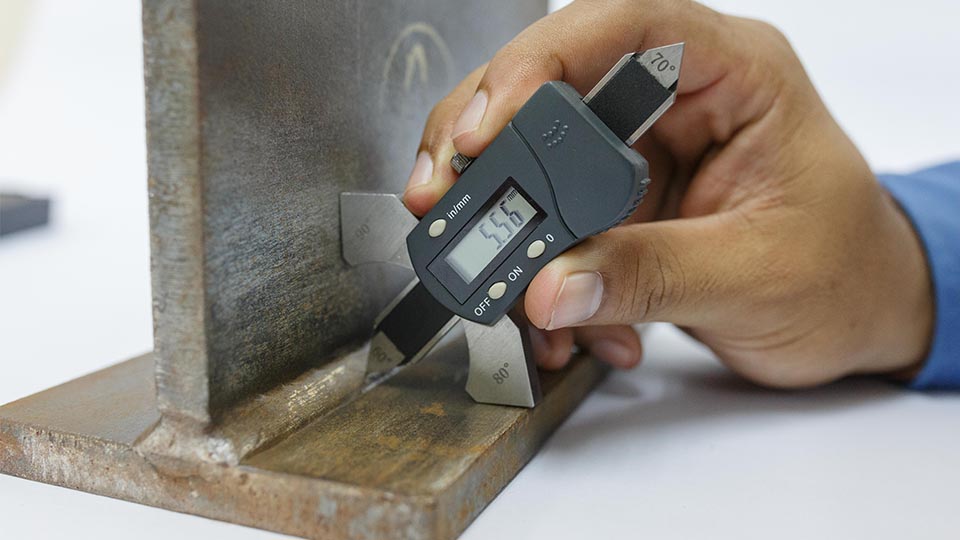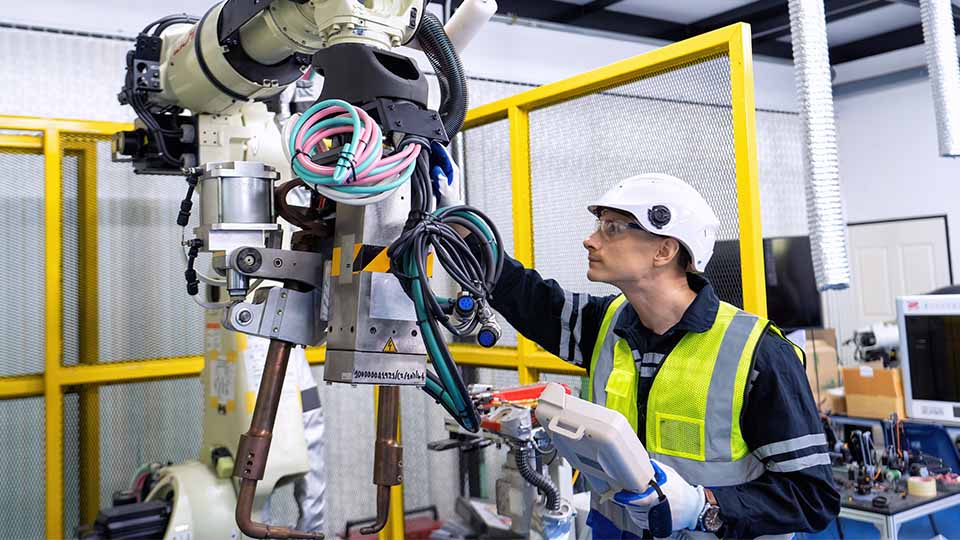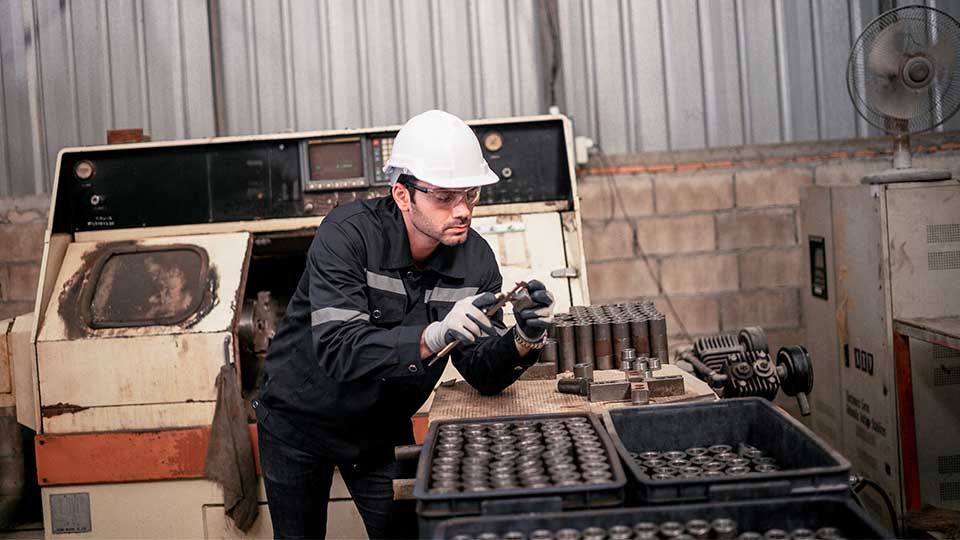Do you have a project that no one in your team can cover? What if this project only extends for a few weeks or months?
In situations like this, hiring a new in-house employee is not the most cost-effective option. Instead, you can use a contract engineer, someone with the expertise you need, but will work on a limited-time contract.
Before you hire a contractor, let’s talk about the scope of their services and whythey can be more beneficial than a full time employee.

Contract Engineers Overview:
Contract engineers are professionals that companies hire for a limited time, usually to complete a special project. They often have a toolbox of specialized skills that might not be found among your regular team members. This makes them ideal for tackling unique problems, implementing new systems, or lending an extra hand during crunch times.
They work on a project-to-project basis, which means their contract might last a few months for a short-term fix or extend to a few years if they’re involved in a longer-term development project.
Since they’re not on the permanent payroll, you don’t have to worry about the usual long-term commitments and costs, such as benefits and paid leave, that come with filling out a new full-time position.
Industries That Hire Contract Engineers:
Contract engineers are a diverse group of professionals employed across various sectors, including but not limited to:
- Engineering Firms
- Tech Companies
- Construction
- Manufacturing
- Energy
- Pharmaceutical
- System Integrators
- Food and Beverage
- Automotive Manufacturers

Why should you hire a contract engineer?
Hiring a contract engineer can be a smart move for many reasons, especially if you’re looking to add expertise, flexibility, and innovation to your projects without the long-term overhead of a full-time hire.
Below, I list a few reasons why bringing on a contractor might just be what your company needs:
Expertise on Demand:
Contract engineers bring specialized skills that your current full-time employees may not have. These skills can prove to be extremely valuable for projects requiring advanced knowledge or technical skills that are outside your usual operations.
Hiring contractors lets you access this expertise only when necessary, which can lead to high-level professional input without the need to expand your workforce permanently.
Contract Work Can Be More Cost-Effective:
Hiring a contract engineer can be financially advantageous, especially if you already have limited cash flow.
You pay for their services only during the contract period and avoid the ongoing costs associated with full-time employees. This includes savings on benefits, paid leave, and other fixed employment expenses. It’s a budget-friendly option for project-specific needs.
Contract Engineers Are Flexible:
When you have a special task or project, it won’t make sense to hire a permanent employee just to accomplish that.
So, the ability to adapt quickly to project demands is another significant advantage of employing contract engineers. They can be hired to manage workload peaks or to contribute to specific phases of a project and provide critical support exactly where and when it is needed.
This kind of flexibility helps maintain productivity without the permanent overhead of additional full-time staff.
Contractors May Provide Fresh Perspectives:
Sometimes, your current team may find themselves in an echo chamber, unable to find new ideas to solve a problem or improve operations.
Conversely, contract engineers often contribute new ideas and viewpoints, which can improve your team’s innovative capacity. Their varied experience, gained from working across different projects and industries, can bring valuable insights and novel solutions to your challenges.
Hiring a Contractor is Faster:
Contract engineers are great at getting up to speed quickly. They’ve usually worked in various settings, so they know how to dive into new projects without much hand-holding. This means you don’t have to spend as much time or resources on training them.
For your projects, this is a big plus because it cuts down the lag time between hiring and actually seeing results. While a new full-time employee might take a while to learn the ropes and start contributing, a contract engineer can begin making a difference almost immediately.
You Can Reduce Certain Risks:
Using contract engineers can minimize the business risks associated with scaling operations. Since the employment is project-specific, you can evaluate the success of new initiatives without the commitment of long-term hires.
If a project needs adjustment or discontinuation, you can do so without significant financial or operational repercussions.
Your Company Can Scale When It’s Ready:
Contract engineers allow your workforce to expand or contract in response to business cycles and project demands. This scalability is especially useful in industries where work volumes can change rapidly due to market conditions or technical advancements, which can help you maintain a balance between workforce and workload.
Contract to Hire:
You may also have the option of hiring your contract engineer full-time if they’re a good fit for your company on a contract-to-hire.

When is the best time to hire a contract engineer?
Hiring a contract engineer can be incredibly strategic, especially when timing aligns with specific needs and business cycles.
Here are some scenarios where bringing in a contract engineer makes sense:
- Project Kick-off: When you’re launching a new project and need additional expertise right off the bat, hiring a contract engineer makes sure that you have the right skills from the start without the long-term commitment of a full-time hire.
- Specialized Projects: If you have a project that requires specialized knowledge that your current team lacks, like a new PLC software implementation, integration of industrial robots, or a unique industrial manufacturing process, a contract engineer can fill that gap perfectly.
- Scaling Operations: When your business is scaling up and you need to ramp up your operations quickly, contract engineers can help manage this growth. They provide the workforce flexibility to adjust to increased demands without permanently increasing your headcount.
- Covering for Leave: If a key team member is on long-term leave and you need someone to step in with minimal disruption, a contract engineer can be an ideal temporary replacement.
- Short-Term Surge in Work: During peak periods when your current staff is stretched thin, contract engineers can alleviate the pressure by handling excess workloads or taking on specific elements of a project. This is highly common for integration companies, who often need support for different projects throughout the year.
- Innovation Drives: When you’re looking to innovate or experiment with new ideas without impacting your core team’s workflow, bringing in a contract engineer can provide the necessary bandwidth and skills for these initiatives.
- Budget Constraints: If budget constraints make it difficult to hire full-time staff, contract engineers can be a cost-effective way to gain needed skills without the long-term financial commitment.
Contact Engineering Companies:
Below, I will list four different types of engineering companies.
- Independent Contract Engineering Companies: Self-employed or independent contract engineers often have their own one-person contract engineering business. Most of these companies have 1-5 clients to keep them business, and they rarely take on new client.
- Consulting Firms: Consulting firms are generally large conglomerates that have hundreds of clients and a very large range of different consulting fields. They usually do not specialize in one type of engineering sector but can support most engineering roles either with their own employees or with other specialized engineering service companies.
- Engineering Services Companies: These are mid-sized companies specializing in a handful of engineering fields but can also have hundreds of clients and employees on staff. An engineering services company may also provide some products for clients on a smaller scale because of the in-house talent they have who can support these types of activities.
- Contract Engineering Platforms: Engineering service platforms are a relatively new way for independent contractors and engineering services companies to win more work. They are platforms that showcase contract engineering profiles on their website, and clients post available work to apply for.
Why do companies hire contractors instead of full-time employees?
More and more companies are offering contract engineering positions because it benefits their project timeline and costing structure. When a company needs project support as soon as possible, they can not, for weeks or even months, go through a full-time employee search, interview, onboarding, and then training process. Generally, a new hire takes 3-6 months until they fully understand their role within an organization. Hiring a contractor with experience who can support immediately and then leave once the project I completed is sometimes the best solution for a company
Additionally, depending on the facility’s location, sometimes it can be very difficult to find qualified engineers for a role, so temporary support can be the best option for a company.
Connect with the best contract engineers in the country!
Every company needs reliable engineering to maximize its process and reduce downtime as much as possible. However, not everyone can afford a team of engineers on staff.
This is where JOINER Services comes in, an engineering service platform where you can connect with skilled and highly-vetted engineering contractors across the country. From weld engineering services to controls engineering services, JOINER has the right professional for you. Their contract engineering services allow their clients to find a specific independent contractor or contract worker from a staffing agency for the contract position.

Join for free and start searching for projects or engineer profiles today.
FREQUENTLY ASKED QUESTIONS
Below, I list some common FAQs about contract engineering.








